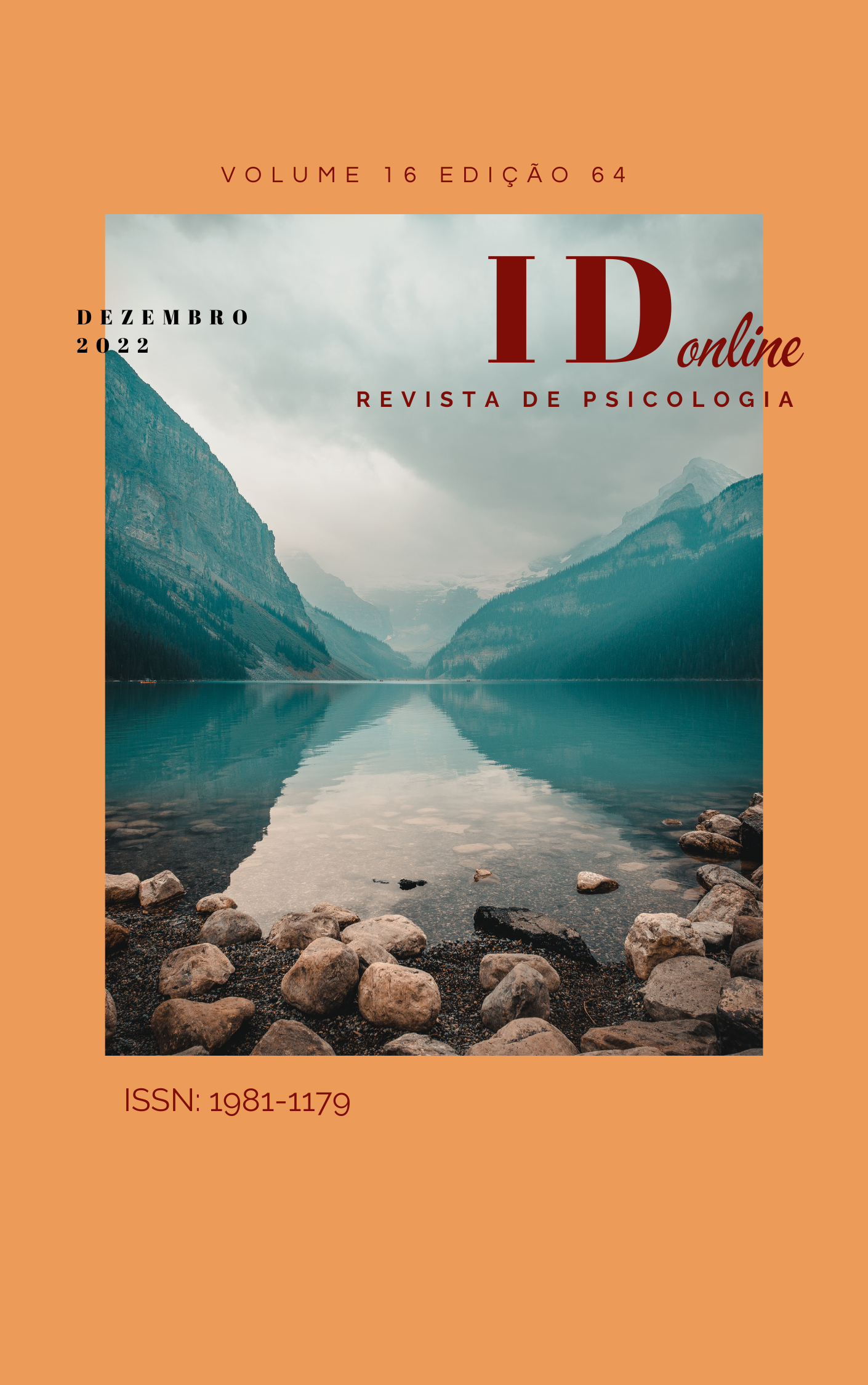Youth and Adult Education in the Prison System: The Teacher's perspective on Detained Students and the Expectations Regarding the Study and life after Prison
DOI:
https://doi.org/10.14295/idonline.v16i64.3659Keywords:
Educação de Jovens e Adultos, Práticas docentes, Ressocialização, Sistema PrisionalAbstract
The present work deals with a relevant theme for the academic and social world, as it deals with Youth and Adult Education within the Prison System. Its main objective is to know, through the eyes of the teacher, what are the expectations of his detained student, regarding his educational future and life after prison. Theoretically, it is based on research already published on the internet, in books and magazines. Authors such as: Federal Constitution (1988), Assis (2007), Tavares & Menandro (2004), Criminal Execution Law (1976), Moreira (2007) and others, supported the reasoning of the work. With a qualitative method, a structured individual interview was carried out with two teachers of the Youth and Adult Education modality (EJA) working within the prison system of Salgueiro-PE. After analyzing the data, through the eyes of the teacher, it was mainly evident that most students live without any expectations related to their studies, considering that studying is no longer worth it and that the opportunity to conquer a future through education has already passed. For the teachers, the classes take place in the midst of mistrust in the environment and hampered by the lack of technological resources, which cannot be used inside the prison. It is concluded that, even with so many challenges faced by teachers and inmates, it is relevant to take education to an environment where most dreams are no longer pursued, but there are still those who intend to continue their studies and be re-socialized.
Downloads
References
ASSIS, R. D. (2007). A realidade atual do sistema penitenciário Brasileiro Recuperado: 26 jun. 2010. http://br.monografias.com/trabalhos908/a-realidade- atual/a-realidade-atual.shtml >.
BRASIL. Constituição da República Federativa do Brasil. Brasília: Senado Federal, 1988.
BRASIL. Decreto nº 7.626, de 24 de novembro de 2011. Brasília: Presidência da República. Casa Civil. Subchefia para Assuntos Jurídicos. Disponível em: http://www.planalto.gov.br/ccivil_03/_Ato2011-2014/2011/Decreto/D7626.htm. Acesso em: 10 de outubro de 2022.
BRASIL. Lei de Execução Penal - lei nº 7.210, de 11 de julho de 1984. Brasília: Ministério da Justiça, 1984.
DURKHEIM, Émile. Educação e Sociologia. São Paulo: Melhoramentos/ Fundação Nacional de Material Escolar, Rio de Janeiro, 1978.
FOUCAULT, Michel. Vigiar e Punir. 16ª edição. Petrópolis: Vozes, 1997. 21
MARCONI, M. de A.; LAKATOS, E. M. Fundamentos de metodologia científica. 5. ed. São Paulo: Atlas, 2003
MOREIRA, F. A. (2007). A política de Educação de Jovens e Adultos em Regime de Privação de Liberdade no Estado de São Paulo Dissertação de mestrado do Programa de Pós-graduação em Educação da USP, São Paulo, SP.
OIT (Organização Internacional do Trabalho). A condição dos professores: A condição dos professores recomendação Internacional de 1966, um instrumento para a melhoria da condição dos professores. Genebra: OIT/ Unesco, 1984.
PENNA, M. G. O. Exercício docente na prisão: apontamentos sobre aspectos do habitus do professor. Práxis Educativa, Ponta Grossa,v. 1, n. 2, 2006, pp. 31 - 38, jul-dez. Recuperado: 10 out. 2016. Disponível: http://www.revistas2.uepg.br/index. php/praxiseducativa/article/viewFile/283/289 >
PORTUGUES, M. R. Educação de Adultos Presos: possibilidades e contradições da inserção da educação escolar nos programas de reabilitação do Sistema Penal do Estado de São Paulo. Dissertação de Mestrado em Educação, Universidade de São Paulo, SP, 2001.
SCARFÒ, F. J. El derecho a la educación em las cárceles como garantia de la educación em derechos humanos (EDH). Revista IIDH, 2002, v. 36, 291 -324.
TAVARES, G.; & MENANDRO, R. M. Atestado de Exclusão com Firma reconhecida: o sofrimento do presidiário brasileiro. Psicologia Ciência e Profissão, 24(2), 2004, 86-99 Recuperado: 25 abr. 2005. Disponível: http://www.revistacienciaeprofissao.org DOI: https://doi.org/10.1590/S1414-98932004000200010
> » http://www.revistacienciaeprofissao.org
UNESCO, MEC, CEAAL, 2005. DECLARAÇÃO UNIVERSAL DOS DIREITOS HUMANOS. Adotada e proclamada pela resolução 217 A (III) da Assembléia Geral das Nações Unidas em 10 de dezembro de 1948. Disponível na Biblioteca Virtual de Direitos Humanos da Universidade de São Paulo: < www.direitoshumanos.usp.br>.
Downloads
Published
How to Cite
Issue
Section
License
Copyright (c) 2022 Yara Patrycia de Amorim, Aurelania Maria de Carvalho Menezes

This work is licensed under a Creative Commons Attribution-NonCommercial 4.0 International License.
Os autores detêm os direitos autorais sem restrições, devendo informar a publicação inicial nesta revista, em caso de nova publicação de algum trabalho.










